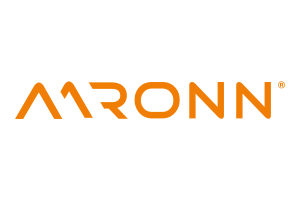Interview with Thomas Ulbrich, VW
"E-Cars for Millions, Not Just Millionaires."
Thomas Ulbrich, member of the Volkswagen Board of Management, responsible for the e-mobility brand and managing director of VW Sachsen, wants to be responsible for the breakthrough of e-mobility on the mass market. To achieve this, he relies on new strategies - and old virtues.
Markt&Technik: Mr. Ulbrich, in February 2018 VW introduced its own board position for e-mobility. Why?
Thomas Ulbrich: For the Volkswagen brand, e-mobility is the central element of the upcoming transformation of the company into a new automotive age; it has the highest strategic significance. It is therefore only logical that the issue should also be anchored centrally in the Board of Management.
However, this realization is still quite fresh. What led to this change of heart?
There are several reasons for the shift towards electromobility: We want to and must make our contribution to climate protection; there is a general change in social awareness and we now see the necessary technical progress - in conjunction with significantly lower costs. The time has simply come.
The diesel scandal played no part in this?
The diesel crisis was not the trigger for our push towards e-mobility. After all, Volkswagen has been offering electric vehicles for years - well before 2015. However, the developments in recent years have certainly helped to push the topic of e-mobility even further and very intensively within the company.
Tesla's success must also have played a role.
The head of Tesla, Elon Musk, has paved the way for e-mobility in the automotive sector. We will now continue to do so consistently. Volkswagen will be the manufacturer with a high level of competence in development, production, sales, and, above all, in scaling large volumes, which will lead the electric car out of its niche and into a wider market.
What is your specific contribution to this ambitious goal?
On the Board of Management of the Volkswagen brand, I am responsible for the entire spectrum of electric mobility issues. My specific product responsibility extends to all 27 vehicles and derivatives that will be based worldwide on the Modular E-Drive Building Block (MEB) over the next three years. We will start our cross-brand mission at the end of next year at our production site in Saxony - at our plant in Zwickau. And by 2025 we will be producing more than one million Volkswagen electric vehicles per year.
The individual brands are responsible for the vehicle design of the electric fleet. Where exactly does your responsibility lie?
At the Zwickau plant alone, we will produce six MEB models for a total of three Group brands over the next three years. These are Volkswagen, SEAT, and Audi. My responsibility is to ramp up the production of these vehicles precisely and on schedule. This also includes ensuring that design requirements can be implemented in production at an early stage of the product development process. In recent months, I have therefore intensively discussed all the necessary product details with the participants in the other brands in order to be able to produce the MEB vehicles economically.
However, this sometimes seems somewhat confusing to the outside world. Your brand management colleague Jürgen Stackmann, for example, with responsibility for Sales, Marketing, and After Sales, has announced a purely electric carsharing offer based on the WE customer platform. At the same time, however, you will also be responsible for the electromobile environment. How do the different responsibilities in the field of electromobility demarcate themselves?
Jürgen Stackmann presented the WE car sharing platform a few weeks ago in Berlin, but we are working together on this topic. This overarching project for an intermodal transport solution, which will start within the next two to three years, is a close merger between our e-mobility and sales departments. The colleagues from the sales department control the design of the WE project - vehicle technology and all associated processes, however, come from my department. In the course of the upcoming corporate transformation, in future, we will see that classic divisional thinking will become increasingly blurred. . A future-oriented company can no longer afford categorical demarcations between individual departments. That is why it is clearly part of my job to actively provide the appropriate interfaces that make such cooperative work possible.
Your previous activities have primarily focused on the areas of production and logistics. In addition, you have also worked in China for several years. What experience did you bring from there?
China is a long way ahead of us when it comes to e-mobility. There I saw, for example, how important political framework conditions are - from the charging infrastructure to special usage zones for e-vehicles within cities. China has implemented this very consistently; we have a lot to catching up to do.
Do you see China at least in this respect as a model for Western democracies?
One should be careful simply to compare political systems with each other. It is true that China is already taking full advantage of existing political opportunities to expand e-mobility. In our western environment, on the other hand, at the moment the car manufacturers still have a lot of convincing to do at the moment in order to work together with politicians to spread e-mobility.
Specifically what do you expect from politicians?
I think it is excellent that the current government has set itself the goal to massively increase the number of public charging points. I also very much welcome the fact that we are now beginning to put our money where our mouth is when it comes to other ideas in the coalition agreement, such as the taxation of company cars. These are all projects that will help e-mobility achieve a breakthrough in the medium term.
- "E-Cars for Millions, Not Just Millionaires."
- Combining Product and Production Experiance





